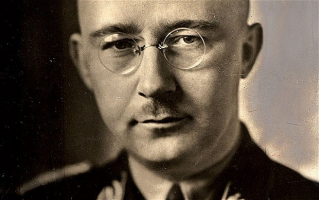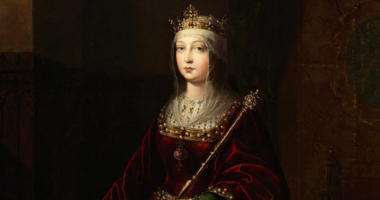Top 10 Interesting Facts about Leo Tolstoy
Russian author Leo Tolstoy is regarded as one of the greatest novelists in history. His literacy legacy, of which the most famous works are “War and Peace” and ... read more...“Anna Karenina”, has inspired generations of readers. Let's discover the most interesting facts about Leo Tolstoy.
-
When he was young, Leo Tolstoy was taught at home by tutors. One of the interesting facts about Leo Tolstoy is that he afterward enrolled in the University of Kazan to study Oriental languages but quit after finding how difficult it was. Tolstoy made the decision to try out law school but gave up this profession in 1847, he was described as "both unable and unwilling to learn" by teachers.
He intended to educate himself because he lacked a degree. But he enjoyed drinking, gambling, and other vices. Playing cards was his weakness, and it cost him a lot of money. One of his largest bets was a house on his property, which he was never able to recover.
Finally, Leo Tolstoy and his older brother Nikolay enlisted in the army in 1851. He participated in the Crimean War and campaigns against the local people there. He was in Sevastopol during the Battle of the Chernaya and the 11-month siege of Sevastopol in 1854-55. He received praise for his bravery during the conflict and was given the promotion to lieutenant. After the Crimean Combat ended, he left the service because he was horrified by how many people die in war.
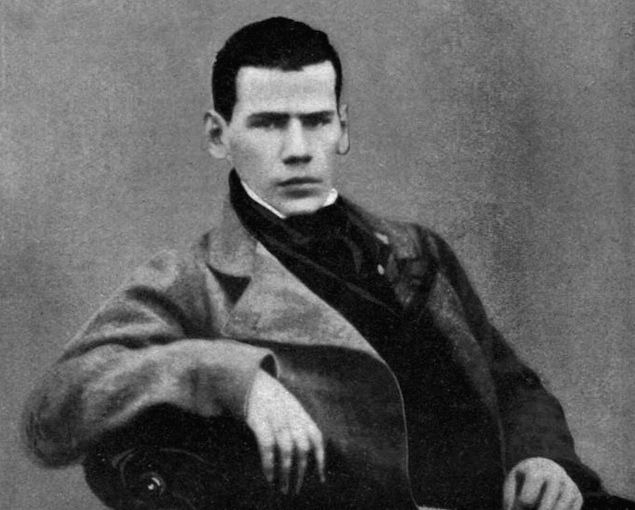
Photo: Pinterest 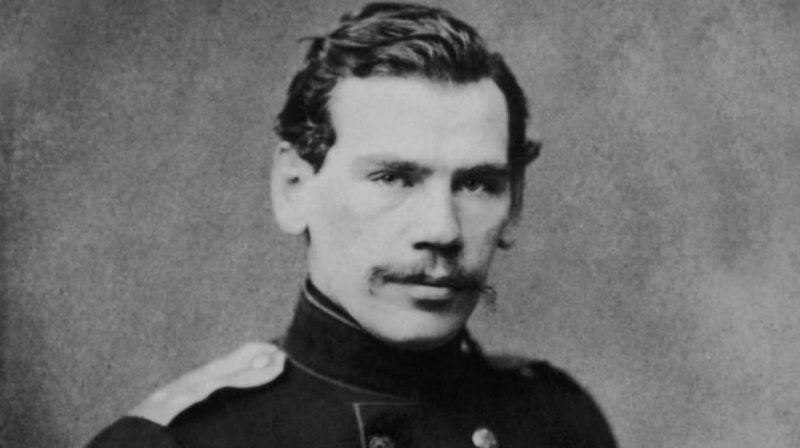
Photo: History -
In March 1847, when he was eighteen years old and confined to a hospital bed for treatment of a venereal ailment, Leo Tolstoy wrote his first diary entry. He was already on the verge of being expelled from university due to poor academic performance, so the forced sabbatical at the hospital drove him on a journey of self-exploration, in the dual sense of both examining himself and contemplating the notion of the self, which would stretch and coil across his entire life.
His wife also kept diaries. He used the diaries to reflect on himself and confide in private matters. His conviction that he had contracted a venereal disease was among the first things he wrote about. The journals also resembled an experiment where he made social standards for himself and made an effort to follow them. He did not, however, consistently adhere to them.
These diaries are fascinating because of their parallel existence in the past and the future. Leo Tolstoy coupled autobiographical insights on the micro-scale with moral decisions on the macro character scale. The impression that Tolstoy was a guy of profound intelligence who was perpetually impaled by the compulsive shoulds in which that very intellect was trapped stands out through his diaries.
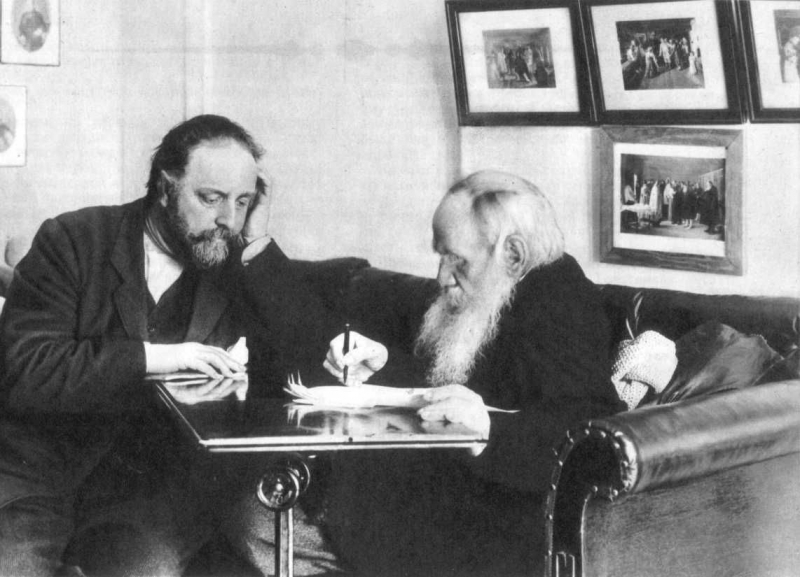
Photo: Pinterest 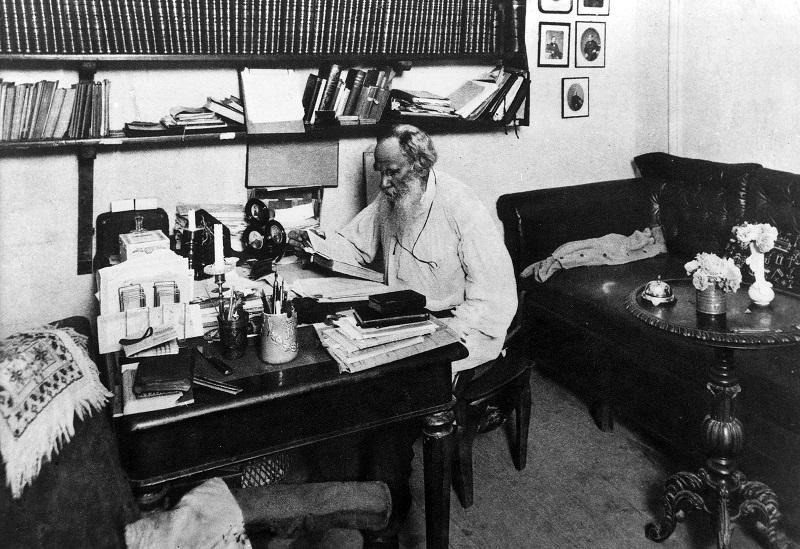
Photo: WNYC -
His love for the countryside is one of the interesting facts about Leo Tolstoy. Despite coming from a wealthy background, he preferred the simple things in life. He spent the majority of his time at Yasnaya Polyana, his country estate. Yasnaya Polyana means "bright glade" in Russian.
Maria and Nickolai Tolstoy, the author's parents, inherited Yasnaya Polyana soon after their marriage. They made it their main residence and moved in practically right away, delayed only by the construction of their desired renovations. The property was the latest in a succession of ones the wealthy Tolstoys bought in the Tula region of Russia. It was meant to house Leo, the fourth child, who was born in 1828.
Leo Tolstoy and his siblings were raised at Yasnaya Polyana, and Tolstoy later abandoned his plans to get degrees in law and oriental studies at Kazan to return to Tula. Tolstoy, who felt bound by the regimented nature of university study, made the decision to skip formalized education in favor of pursuing his writing, occasionally taking breaks to serve in the army. Tolstoy's literary imagination was therefore fostered at Yasnaya Polyana, which he later referred to as his "inaccessible literary stronghold" and where two of his most well-known books, War and Peace and Anna Karenina, were written.
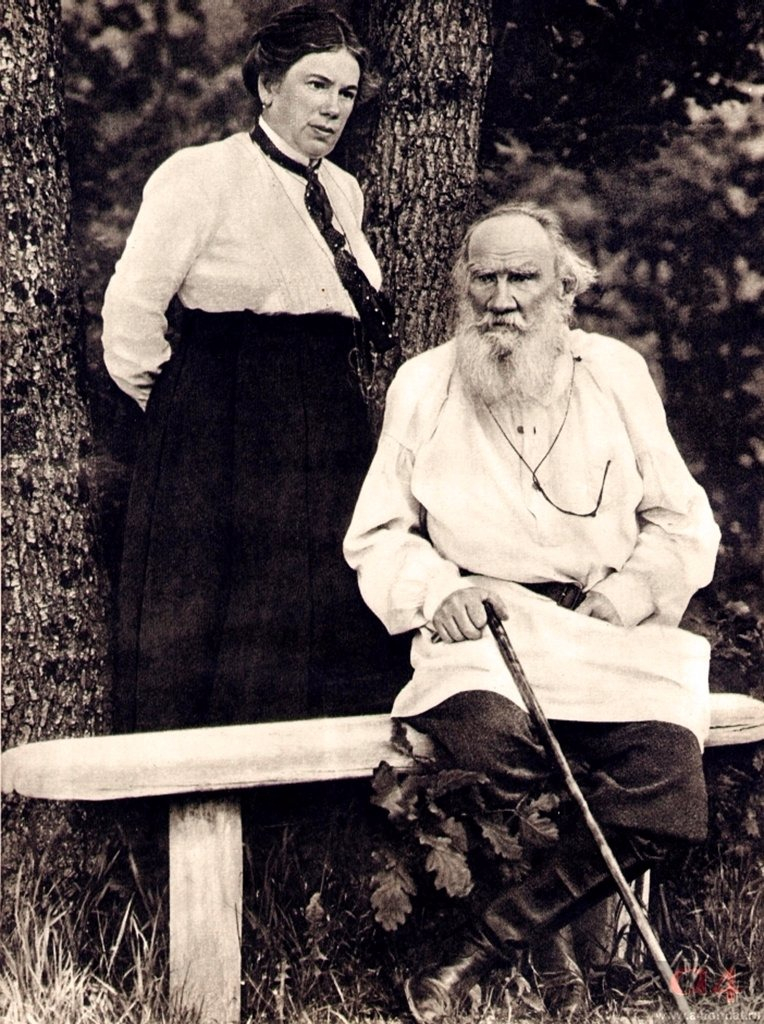
Photo: Super Stock 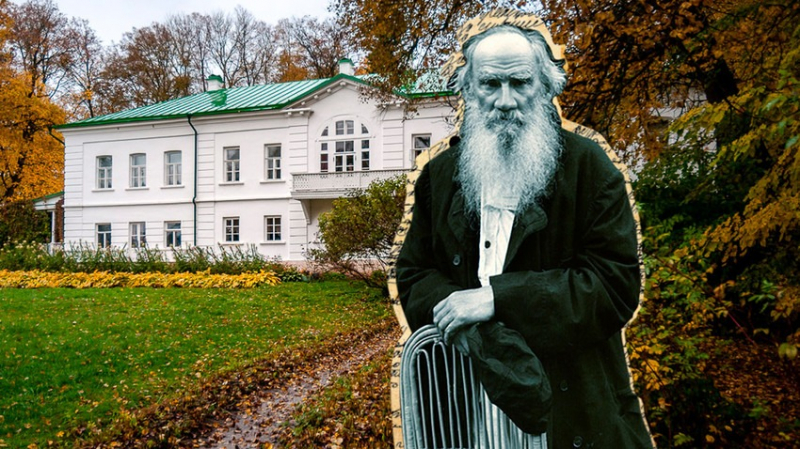
Photo: Russia Beyond -
Leo Tolstoy had acquired a wide range of linguistic skills throughout his life, like many other aristocrats. He read Greek, Latin, Spanish, Italian, Ukrainian, Turkish, and Bulgarian, among other languages, in addition to English, French, and German with ease - one of the interesting facts about Leo Tolstoy. German and French were the first two foreign languages that Tolstoy studied with instructors. In the Russian Empire, learning these languages was fairly widespread.
He learned Tatar while getting ready for admission to Kazan University at the age of 15. Later, Leo Tolstoy pursued independent language study. He also read works written in the ancient language of Greek and studied it. His wife - Sofya Tolstaya recalled: "At the present moment, L. is sitting with a seminarian in the living room and taking his first Greek lesson. He suddenly had the idea to study Greek."
He had even developed his own technique of learning, so he had self-taught all of his linguistic abilities. He translated works and read books to broaden his vocabulary. Leo Tolstoy employed this approach to learn new languages, which is challenging to imitate in the modern era. His home library held 23,000 books in 39 different languages. Many of them have notes made by Leo Tolstoy, so, it is obvious that he actively used them.
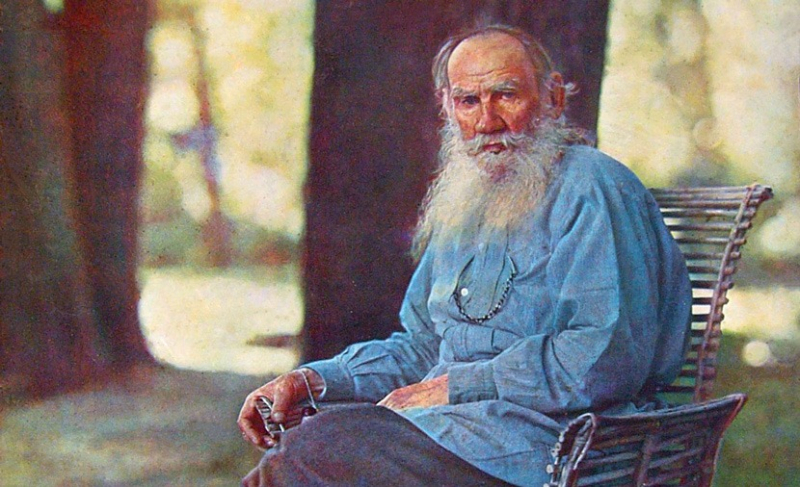
Photo: Mosaic Magazine Source: 77heraclitus -
Leo Tolstoy was undoubtedly a prolific writer. His legacy includes 165 000 sheets of manuscripts, 90 volumes of complete works, and 10 000 letters. Many of his works, including the well-known four-volume epic War and Peace, are renowned for being quite long. However, Tolstoy's handwriting was not clear and was far from ideal, which disappointed his editors. Tolstoy’s illegible handwriting was worsened by conventional signs, countless corrections and additions.
His wife, Sophia is the only person who could understand it. To help him, his wife Sophia altered practically all of his significant works before submitting them to the editor. She would also revise Tolstoy's diaries toward the end of his life so that future generations could profit from it. She had to re-write War and Peace many times before Leo chose the final version to submit to his editors.
When Cesare Lombroso, a renowned Italian physician, first looked at Leo Tolstoy's handwriting, he came to the conclusion that it belonged to a woman of pleasure with psychopathic tendencies. Despite the fact that he had recorded so many intimate details, including their disagreements, she still undertook this duty.
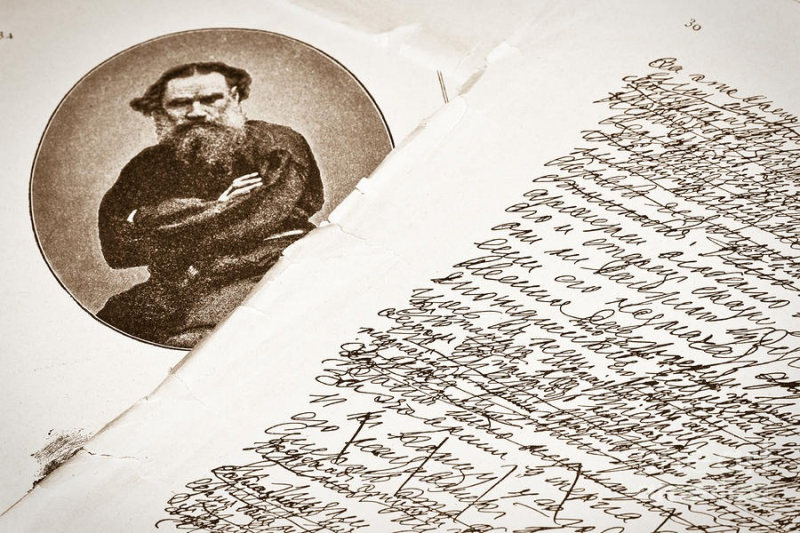
Photo: Pixel 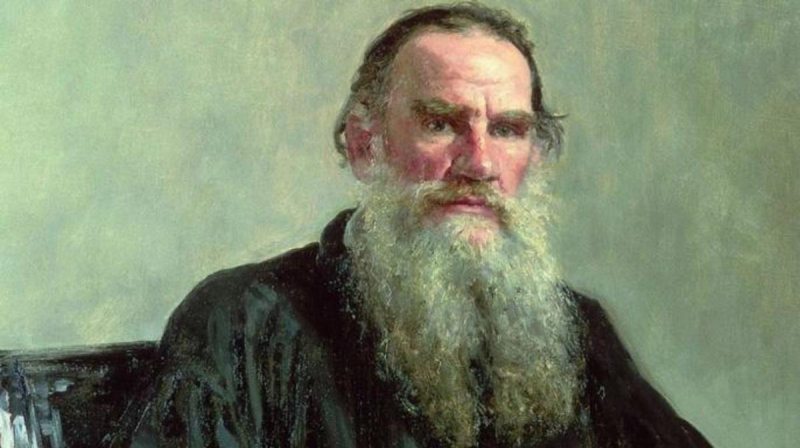
Photo: History -
The relationship between Leo Tolstoy and his wife, Sophia Behrs was far away from ideal. Leo Tolstoy and his wife, Sophia Behrs, started their romance in a way that was incredibly unusual for the 19th century. Tolstoy, who was 34 at the time, wanted their relationship to be completely open when he asked Sophia, then 18, to marry him. Leo handed Sophia journals before they got married in which he talked about his previous intimate encounters with other women, including a peasant servant with whom he had a child out of wedlock. After learning about her future husband's sexual exploits, Sophia was horrified, yet she still decided to get married.
Tolstoy did nothing but make delivery more difficult. He once more turned to the peasant women in his hamlet each time his wife was pregnant and unable to have sex.
Children's caregiving also fell to Sophia. Leo Tolstoy occasionally engaged in game-playing with them, but most of the time he was writing or attending meetings with his fans and coworkers. Sophia also took responsibility for providing for their children's clothing and food while teaching them music and manners. Tolstoy was against the governors and nannies that most noble families of the period employed, so she handled everything on her own. Instead, he thought that all of this was a mother's responsibility.
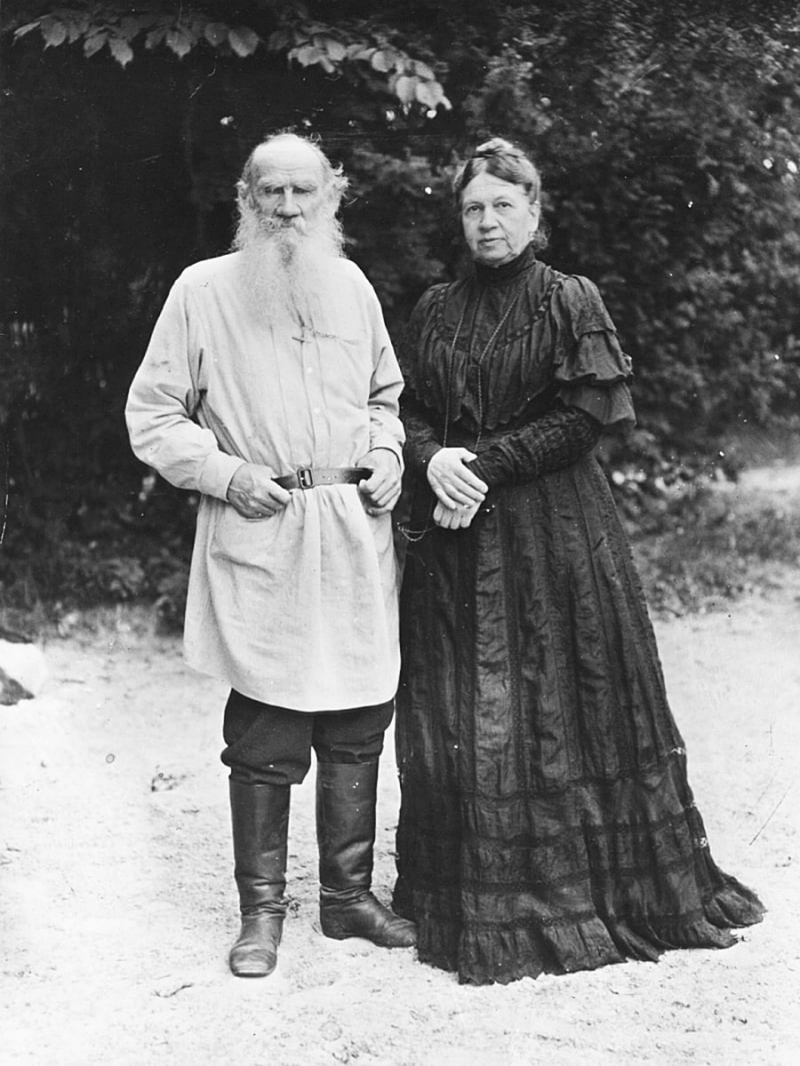
Photo: Russia Beyond 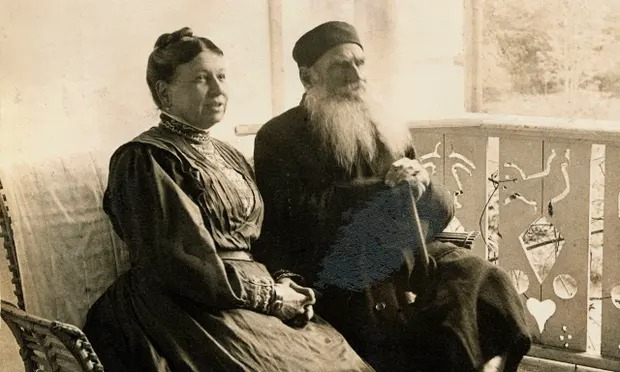
Photo: The Guardian -
The decision of Tolstoy to leave the church was made voluntarily. Tolstoy was a Christian, had been baptized, and had maintained a lifelong faith in God. But over time, he began to disagree with certain of the Russian Orthodox church's tenets. Tolstoy was naturally outspoken about his views because he was a writer.
After the successful release of "Anna Karenina" in the 1870s, Leo Tolstoy experienced a series of emotional and spiritual crises that ultimately led him to doubt his belief in the tenets of organized religion, which he saw as corrupt and at odds with his interpretation of Jesus Christ's teachings. He also grew increasingly uncomfortable with his aristocratic background and ever-increasing wealth. The author dared to compose his own interpretation of the hallowed history of the New Testament. In addition, Tolstoy wrote a serious work on the study of the New Testament that was over 800 pages long and in which he strongly opposed the core principles of Christianity, occasionally used profanity, and undermined the contemporary clergy in every way possible.
Because of his rejection of religious practices as well as his criticisms of the state's function and the idea of property rights, Leo Tolstoy was headed for conflict with Russia's two most potent institutions. He was placed under police monitoring despite coming from a noble family, and the Russian Orthodox Church excommunicated him in 1901.
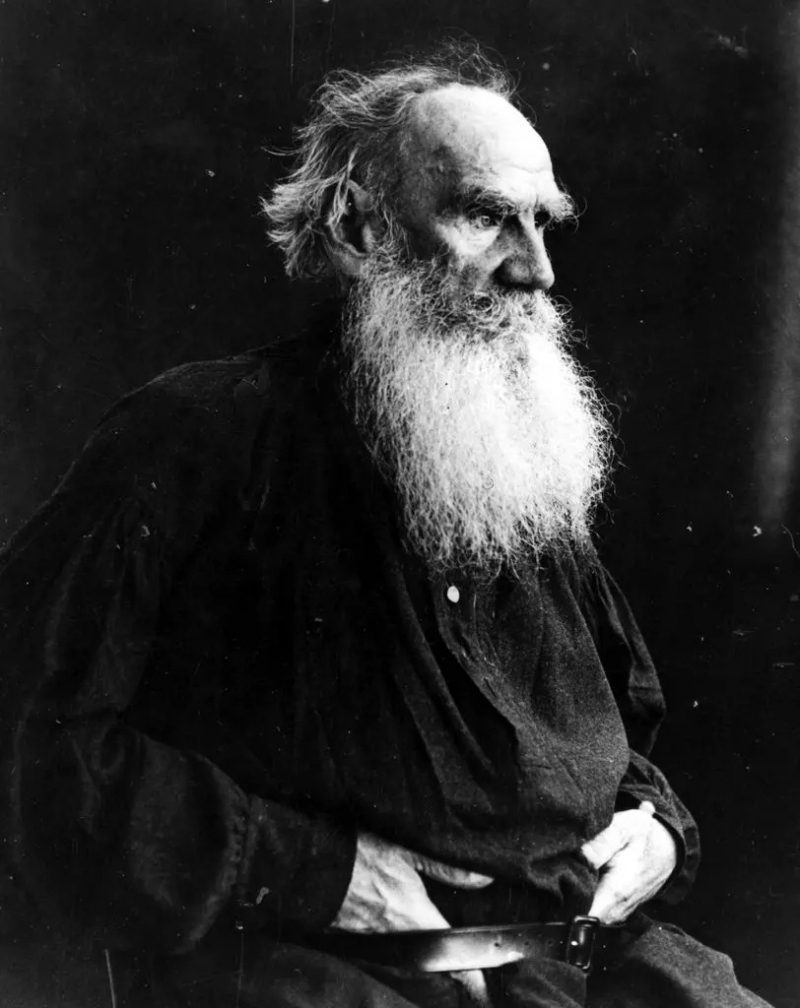
Photo: The New York Times 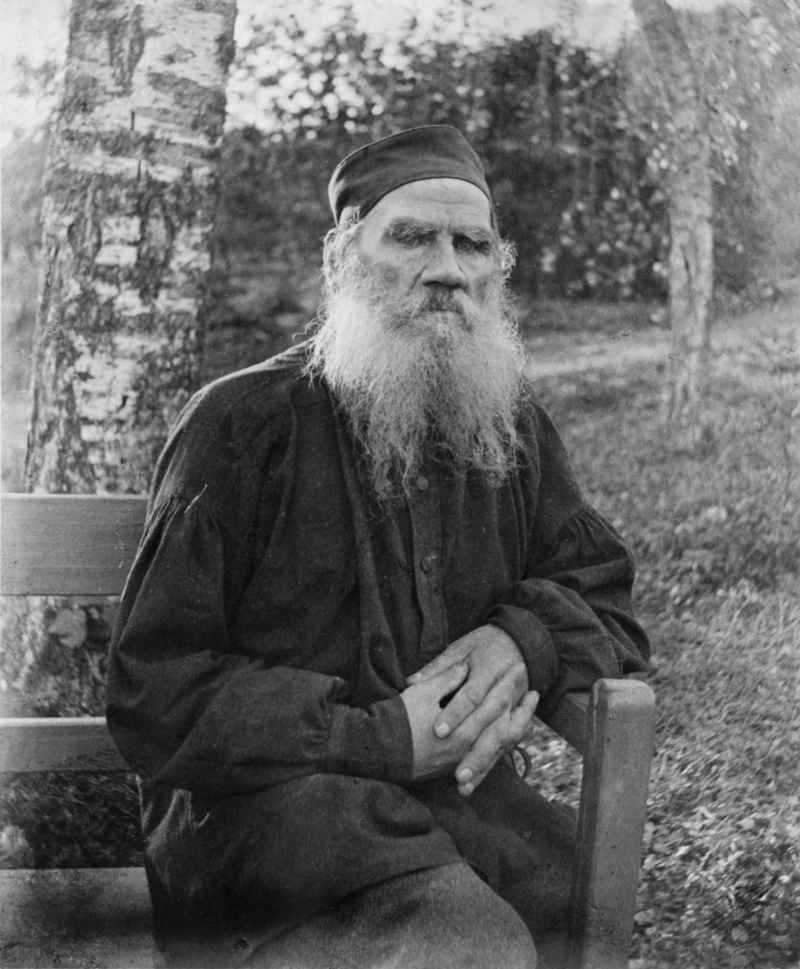
Photo: Wikipedia -
A Nobel Prize would be a great honor for many writers around the world. Leo Tolstoy was an exception to this rule. He was never given a chance to win the Nobel Prize despite being one of the finest writers of all time. He was also the only candidate who subtly requested that his name be removed and to decline the $100,000 prize
Many of Tolstoy's supporters were dissatisfied when the French poet Rene Sully-Prudhomme was named the first Nobel Prize laureate in 1901. Tolstoy was absent from the list of nominees for a number of years. The St. Petersburg Academy of Sciences presented an application in 1906 in favor of the author's nomination. Leo Tolstoy requested that his Finnish translator, Arvid Jarnefelt, remove his name from the list of nominees after having a rumor that he should get the Nobel Prize. He expressed how painful it would be to have to decline the reward if he won.
Years later, when the public was upset once more that he had not been nominated, Tolstoy wrote: "First, it has saved me the predicament of managing so much money, because such money, in my opinion, only brings evil. Secondly, I felt very honored to receive such sympathy from people I have not even met."
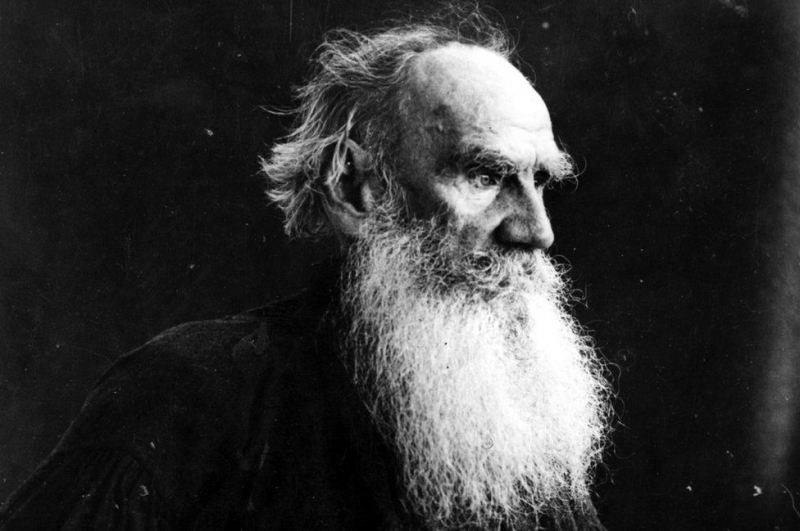
Photo: BBC Source: The School of Life -
Throughout his life, Leo Tolstoy admired a variety of authors. He enjoyed the work of many of his contemporaries and was friends with many of them. Tolstoy did not, however, have a particularly positive opinion of Shakespeare. He would even go so far as to imply that he detested the dramatist from England. Shakespeare was a genius, and Chekhov reportedly claimed that Tolstoy was terrified by him.
Tolstoy observed that when he asked Ivan Turgenev and Afanasy Fet, two authors he adored and respected, to explain what exactly made the author so great, they could only do so in general terms, lacking the clarity of language or the in-depth level of analysis they usually show in their fiction. At first, he had thought that with time, he would grow to love Shakespeare. But when Tolstoy read Shakespeare for the uncounted time at the age of 75 and still felt unmoved, he decided to put his comments down in writing.
Leo Tolstoy questioned the bard's playwright skills. It was difficult for spectators to identify to his characters since they were put in absurd situations like sitcom-style identity swaps and biblical killing sprees. They frequently behaved in ways that were inconsistent with their personalities, acting instead in accordance with the plot's timeline.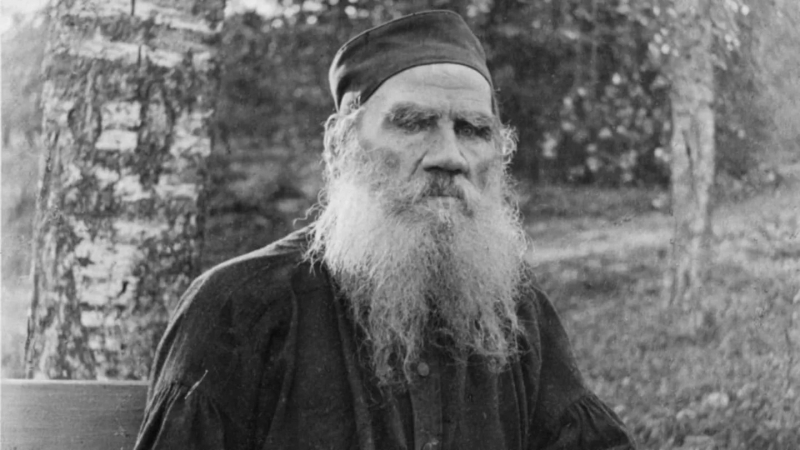
Photo: Mental Floss 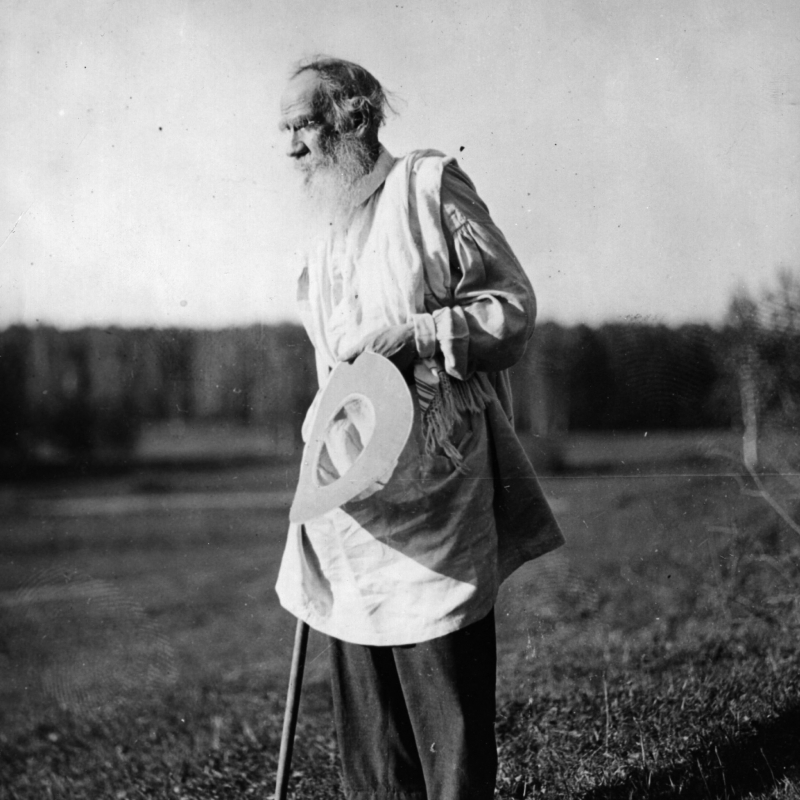
Photo: Yeni Vatan Gazetesi -
Around the age of 50, in the latter portion of his life, Leo Tolstoy made the decision to switch to vegetarianism. He believed that everyone would eventually become a vegetarian in the future. He was fascinated about becoming a vegetarian and had a strong belief that slaughtering and eating animals was evil and inhumane.
Like war and serfdom, Leo Tolstoy grew to believe that eating and killing animals was a nightmare to which his culture had become all too accustomed. Tolstoy, like many animal rights activists today, used a detailed description of a slaughterhouse to express his abhorrence of meat consumption: "If he be really and seriously seeking to live a good life, the first thing from which he will abstain will always be the use of animal food, because, to say nothing of the excitation of the passions caused by such food, its use is simply immoral, as it involves the performance of an act which is contrary to the moral feeling—killing."
After becoming a vegetarian, he published an article, called The Vegetarian. Vegetarianism is also included in his works. Therefore, he made a great contribution to Russian society, in terms of a vegetarian diet and lifestyle.
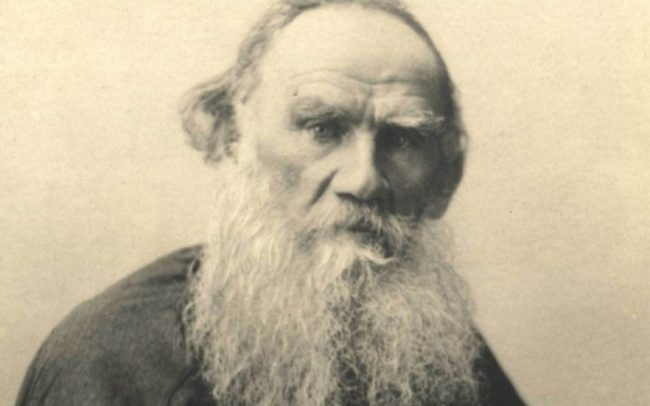
Photo: Open Culture 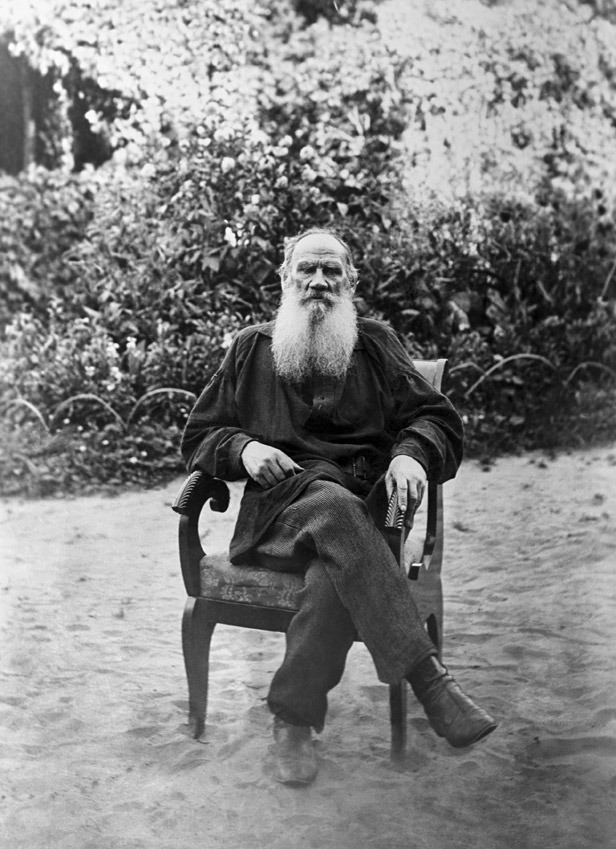
Photo: Russia Beyond




























